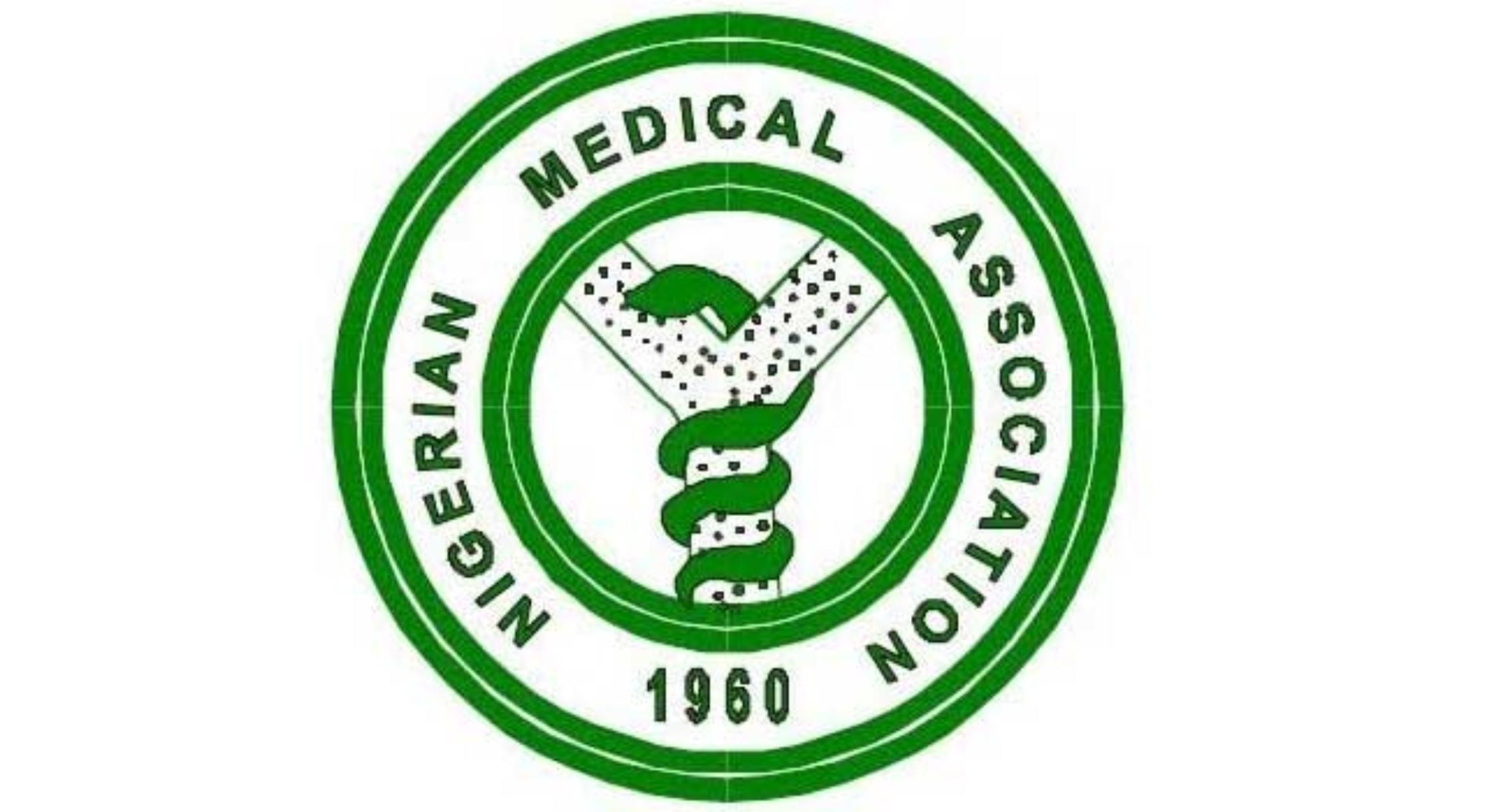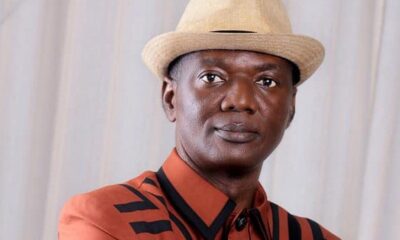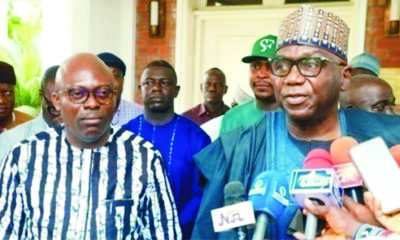Opinion
June 12 At Last!
Wednesday, June 6 historic declaration of June 12 as a Democracy Day and the honouring of Late Chief MKO Abiola, the presumed winner of June 12 presidential elections with the Grand Commander of the Federal Republic (GCFR), the highest honour in the land and Late Chief Gani Fawehinmi (SAN), the foremost Nigerian human rights lawyer with the Grand Commander of the Order of the Niger (GCON), the second highest honour by President Muhammadu Buhari, is commendable and a welcome development.
It is also an honour to those of us who risked our lives at that volatile and unsafe period of national madness to fight for the revalidation of June 12 and enthronement of democracy in Nigeria.
June 12 presidential election adjudged by the local and international observers as the most credible, freest and fairest election in the electoral history of Nigeria was annulled by General Ibrahim Babangida 25 years ago. Late General Sani Abacha who took over from Babangida as the Military Head of State detained late Chief Abiola for declaring himself the President of Nigeria; an action General Abacha considered as an affront to his government.
These unfortunate developments, however, brought about strong agitation by Nigerian journalists, lawyers, human right activists, pro-democracy groups, all fighting for the release of Abiola from the detention and revalidation of June 12 presidential election won by him.
There was unprecedented tension and agitation in the country. There was confusion, skepticism, hostility and hatred everywhere, even among the military. Many Nigerians were killed, detained and many others relocated abroad to save their lives. There were bloods and tears all over the land. Media houses were closed down. The Military themselves were in disarray, implicating one another. It was the most turbulent time in Nigeria. In fact, the annulment of June 12 was the greatest crime and injustice committed against Nigeria and its people in her quest to attain democracy since independence.
I was a member of NADECO in Abuja . I was arrested at the court premises on the very first day late Abiola was brought to court in Abuja. I was tortured and detained for 12 days. I was charged to court for writing an inciting and seditious article against the Federal Government.
Other campaigners for the release of Abiola were also arrested and arraigned. Their offences were possession of seditious articles and posters with intent to cause public disaffection, criminal conspiracy, unlawful assembly, rioting and disturbance of public peace.
President Buhari, for whatever reasons and motives, has done well and deserves our encomiums for this singular act. Whether it was self baptism for the sins he committed against democracy when he scuttled and truncated the democratically elected government of Alhaji Shehu Shagari in December 31, 1983, or is he now a born again democrat? All I know is that Buhari has, from this day, deepened himself in the ocean of democracy.
For General Ibrahim Babangida, General Sani Abacha and General Abdulsalami Abubakar, they would remain stigmatized and tainted as June 12 collaborators and obstructors of democracy in Nigeria for that era. It is on record that General Babangida’s government superintended the annulment of June 12 presidential election won by Chief Abiola; General Abacha’s government superintended Abiola’s incarceration and General Abubakar’s government superintended his death.
As for Chief Olusegun Obansanjo, his conscience would continually prick him for his inability to recognize late Abiola as a man who laid the foundation of the House of Democracy he occupied for eight years as President of Nigeria. June 12 would remain a fatal wound in their hearts for life.
What Buhari did on June 12, 2018 was to accord late Chief Abiola a presidential burial and to cloth the naked and forsaken June 12 martyr with national attire as the father of our democracy. Whatever was Buhari’s motive is secondary.
By his death, late Chief MKO Abiola had joined the great men and women of the world who laid down their lives for their countries to move forward. They include late President Abraham Lincoln, late President John F. Kennedy, all of the United States of America, late Mahatma Gandhi, Indira Gandhi both from India, late Rev Martin Luther King etc.
People like Nelson Mandela sacrificed his time for his people. He was kept in a solitary confinement for 27 solid good years by the racist government of South Africa. Here in my State, Rivers State, indeed Niger Delta, people like Isaac Adaka Boro, Dr Obi Wali and Ken Saro-Wiwa died for Niger Delta. Today, Niger Delta is relatively free and was on top with Dr Goodluck Jonathan as President of Nigeria for six years.
All these means that for a nation or people to be socially, economically, politically strong, calm and stable, there must be ransome sacrifice of its eminent and distinguished citizens. That was the ransome price and sacrifice late Chief Abiola paid. A price for democracy, liberty and democratic stability. Today, Nigeria is at 18 years of uninterrupted democracy Something we never witnessed before. Courtesy of Abiola’s sacrifice.
It is, therefore, my candid opinion and appeal to the Federal Government, to as well, gazette and engrave the names of the heroes of our democracy on a stone and conspicuously place it in the front of the National Assembly, Abuja for Nigerian children yet unborn to know those who fought for our democracy.
In the same vein the names of the heroes of our independence should also be recognized and engraved on a stone and placed at the Eagle Square. Abuja for all to see.
Furthermore, I want to suggest that the National Assembly building, the heart of democracy, should be renamed after Chief MKO Abiola. It should be known as Moshood Abiola Democracy House . Abiola’s birthday should be proclaimed as National Holiday just as America did to late Rev Martin Luther King. Prof Humphrey Nwosu who conducted the most credible, freest, peaceful and fairest elections in the electoral history of Nigeria should also be honoured with the national award.
Prince Ogbuehi, a June 12 activist, wrote in from Eagle Island, Port Harcourt.
Prince Ike Ogbuehi
Opinion
Other Sides In Junior Pope’s Death

The tragic boat mishap of Wednesday, April 10, 2024, which claimed the lives of popular Nollywood actor, Mr John Paul Obumneme Odonwodo, popularly known as Junior Pope, and four others, has sent shock-waves across the Nigerian movie industry, and set the social media buzzing with reactions.
A contingent of 12 movie crew members had set out for a boat journey from the River Niger Cable point, a waterside jetty at Asaba in Delta State, to cross to the other side of River Niger, into Anam, a riverine community in Anambra State, for the shooting of a movie set titled ‘Another side of Life’ produced by Adanma Luke. Unfortunately, a series of avoidable events culminated the journey into an ill-fated expedition that sent fives lives to ‘the other side of life.’ The incident made the movie’s eventual ban a nullity, having played-out its symbolic meanings in real life while in the making, rather than on envisaged screens.
An avoidable incident, it exposed our society’s casual attitudes towards marine and general safety, as well as our endemic superstitions, while telling, on several flaps, other side tales of reality in the accounts of what transpired during the production, or rather, play of Adanma’s ‘Another side of Life.’
While veteran actor and Senior Adviser on Military Relations to the President of Actors’ Guild of Nigeria, Mr Steve Eboh, claimed he missed joining the ill-fated boat because he arrived too early before the crew, and had to go back, the producer, Adanma Luke, claimed she missed it because she came too late.
A journey’s jolly take-off from Asaba, Delta state, which ended tragically in its return from the other side in Anambra State, proved to be a rascally journey that showed the other side of rascality, even as T. C. Okoye claimed that pre-performing of obeisance to some marine spirits saved his life. But it was T. C. Okoye who had to hang unto a boat’s anchor in the face of death, rather than rely on the powers of the spirits he had appeased with Fanta, to await rescue from mortal men – sensible men, whose advise that one needs wear life jack during marine journeys – he had forsook, yet gave glory to his rituals after rescue.
Conversely, one may flip the flap to consider the other side of T. C. Okoye’s rituals to ruminate on other possibilities. Could the ringing of bells, spraying of money and snacks, and pouring of Fanta, have evoked the anger of the ‘marine spirits’ as rumoured, or distracted the boat driver, to the point of accident? And as reported by The Punch, what’s the significance of T. C. Okoye ‘dashing’ ritual money to innocent children whom circumstance made to be by the riverside?
Also, the argument by Mr Steve Eboh, that “If the star actors in that boat had wanted to wear life jackets, they would have been given the jackets” holds no ground, because the guild, as well as all the marine transport stakeholders, should have enforced strict safety compliance by all voyagers. It is therefore commendable that the Anambra State Commissioner of Police, Aderemi Adeoye, has ordered exhaustive investigations into the matter to determine criminal liability of all persons involved.
However, in the melee of pandemonium that accompanied rescue efforts, Nollywood celebrities, our society’s supposed role models, prioritized superstitious rescusitation over sure medical practice, rushing victims between spiritualists and hospitals, until a ‘pope’ whose work and journey had bound with the superstitious, died amidst superstition. Indeed, it’s during crises, when people care less about ‘packaging,’ that truth and the real personality of humans stand bare and naked.
While medical personnel who got their chance late had certified Jnr Pope dead, our star-persons held unto their spiritual advisers who claimed his spirit coming back to life, up until reality finally dawned that pope’s spirit has permanently crossed to the other side of life.
Regrettably, the reality has not fully dawned, otherwise three corpses shouldn’t have been buried by the riverside as dictated by spiritualists, and Jnr Pope’s family shouldn’t be worried about what would happen, as rumoured threatened of his three children, if his corpse is not buried by the riverside. However, it appears that having encountered the influence of a frontline celebrity, the spirits have turned capricious by bending divinely demands to accepting two cows, as rumoured, in exchange for Jnr Pope’s corpse being buried elsewhere.
According to the Anambra State Police Public Relations Officer, SP Tochukwu Ikenga, a team of rescuers comprising men of the Anambra State Marine Police Command, the National Inland Waterways Authority (NIWA) and the Maritime Workers Union of Nigeria, with the aid of fisher men, rescued seven persons alive to the Anambra side, while two retrieved corpses were sent across the other side, to the Delta State Marine Police Command jetty where Nollywood officials stood waiting. Of other three victims, two corpses were rescued next day, while a third was thrown out by river tides, all of whom; Abigail Fredrick (Vice Chairman of Costumer Designers Guild of Nigeria, and Akwa-Ibom State-born make-up artist), Precious Oforum (Sound engineer) and Joseph Anointing (Gaffer), have since been buried by the riverside, according to local belief.
However, what the police PRO’s statement didn’t reveal is if Jnr Pope’s corpse was sent to the other side in Delta after all the back and forth between spiritualists and medical personnel within Anambra, or if it was sent straight upon rescue to Delta state, but mysteriously found its way back to Anam, on the Anambra side.
It’s unfortunate that Nollywood which set out in its early days to expose superstitious beliefs and practices in our societies, in the hopes of enlightening the minds of the masses, and to curb the manace, has made many believe it’s rather reinforcing superstition in the ways it condicts the movie industry business.
Members of the showbiz in general, now appear to be key protagonists of superstition to the point that, being perceived as role models, so many youths have been drawn to lives of unrealistic dreams and materialism, which often get pursued through ritualism, with its attendant crimes.
Joseph Nwankwo
Opinion
The Value Of Books And Reading
The quality, quantity and diversity of books produced by a society are important indicators of that society’s level of development. . . .”–Valdehusa (1985).
April 23 of every year is marked around the world as ‘World Book and Copyright Day.’ Also known as ‘International Day of The Book,’ it is a Day set aside by the United Nations Educational, Scientific and Cultural Organisation (UNESCO), to promote reading, publishing and copyright. The Day aims to change lives through a love of books and shared reading. The theme for the 2024 ‘World Book Day’ is: “Read Your Way.” This year’s theme calls on everyone to let go of pressure and expectations, giving children a choice – and a chance to enjoy reading.
According to Audrey Azoulay, Director-General of UNESCO: “Books have the unique ability to entertain and to teach. They are at once a means of exploring realms beyond our personal experience through exposure to different authors, universes and cultures, and a means of accessing the deepest recesses of our inner selves.” Therefore, the power of books should be leveraged to combat isolation, reinforce ties between people, and expand our horizons, while stimulating our minds and creativity. It is critical to take the time to read on our own, or with our children.
Did you know that The Bible stands out as the most widely translated and distributed book worldwide? Yes, the Bible is by far the most widely translated and distributed book! Its wisdom has reached and helped more people than any other book or publication. 96.5 percent of the world’s population has access to the Bible. The Bible is available (in whole or in part) in over 3,300 languages, and the estimated number of copies of the Bible produced is 5billion, far more than any other book in history. Which other book(s) do you enjoy or have you enjoyed reading? As for me, one book I am currently enjoying reading is a 400 – 500 page healthcare handbook titled, Where there is no doctor, authored by David Werner. It is a very valuable healthcare handbook that I have found to be very very beneficial! In fact, this healthcare handbook has been fondly described by some as “the ‘Bible’ of health education,” and I strongly recommend that every family should have a copy of this book at home. Apart from this book, I also enjoy reading for pleasure children’s books, such as those I have found on booksmart.worldreader.org and www.africanstorybook.org. What about you? What books have you enjoyed or do you enjoy reading? Do you know about the book industry? There are three major sectors of the book industry. They are: publishers, booksellers and libraries.
Book publishing is channelled towards promoting learning and expanding knowledge. In a strict sense, book publishing starts from the point of conceptualisation of the ideas for the book by the author, and ends at the very last stage – the end-user (the reader). The history of book publishing in Nigeria can be traced to the establishment of the very first publishing press in Calabar, in 1846, by Rev. Hope Waddel of the Presbyterian Church of Scotland Mission. The press was used to print Bible lessons and later arithmetic books for schools.
In 1854, another Missionary based in Abeokuta, Rev. Henry Townsend of the Church Missionary Society (CMS), established a Press. Five years later (1859), he used it to print the very first newspaper in Nigeria – ‘Iwe Irohin.’ Thereafter, notable Nigerians like Herbert Macaulay established the first indigenous newspaper in 1926, called Lagos Daily News. Also, in the same year, Daily Times made its debut. In 1949, Oxford University Press (OUP) floated a sales outlet in Nigeria. This action attracted many foreign-based publishing firms to Nigeria, such as Macmillan, Longman and others. The first published book in Nigeria by OUP was released in 1963, when its local branch published ‘Ijala Ere Ode’, a Yoruba poetry genre by Oladiipo Yemitan. Aside from the foreign companies, many other home-based publishing houses were architected by indigenous entrepreneurs. The book publishing industry in Nigeria has continued to enjoy drastic growth ever since.
However, in the last few decades, the Nigerian indigenous book publishing industry has experienced a downturn due to numerous challenges facing the industry, including: book piracy, proliferation of unqualified author -.publishers, lack of capital, and inability to provide adequate numbers of high-quality books.
Other challenges include: poor reading culture, infrastructural decay, dearth of expertise, incessant rancour among the major stakeholders, and so forth.
Therefore, here are some suggestions for developing our book publishing industry in Nigeria: Stakeholders such as government, publishers, authors, regulators, booksellers, libraries, and readers should cooperate among themselves and contribute their quota immensely towards the development of a virile book publishing industry. Private investors such as banks, finance houses and influential individuals should participate, especially in terms of massive capital injection.
Ighakpe writes in from FESTAC Town, Lagos.
Daniel Ighakpe
Opinion
Let The Poor Breathe
In the history of our nation, only petroleum products have suffered more incessant increments in prices than electricity supply in all public products and services. Unfortunately, those are the two main things that impact mostly on our lives and national economy. While the increment in petroleum products’ prices is always attributed to the price of crude oil at the international market and the need to curb the scarcity by encouraging the supply, the increment in the electricity tariff has never had any justifiable reason and no service improvement afterwards. In fact, the electricity supply has gone far worse now that the tariff has gone up by over 300 percent. One of the underlying reasons for the planned electricity subsidy removal as unconsciously relayed by the Minister of Power on TVC News is the sabotage of the system by those collecting the subsidy money to maintain the assets. He said: “These are assets that we spend the country’s money on, and our brothers deliberately sabotage them. So, you can see that some people are hiding somewhere that do not want this sector to work”.
Just as the petroleum subsidy must go because the government is too impotent to handle the petroleum subsidy racketeers, the electricity subsidy has to also go at the expense of the poor masses and no one has been prosecuted for it.
When the oligarchs rob us blind, the poor masses are made to pay. The only tool that seems to be at the disposal of this government for the combat of economic challenges brought by the corruption of the political elites is to make the poor masses suffer deprivations.
No doubt, stopping the monkeys from the banana plantation is a Herculean task. But those with their thinking caps on will not need to destroy the banana plantation to ward off the monkeys. The Federal Government has taken several decisions in the last one year that are akin to milking the debilitated cow to feed the virile buffalo. The electricity tariff now has to go up to make more money for the oligarchs that sold our collective heritage to themselves and have been taking money from us for next-to-nothing service delivery.In order to win the supports of the poor masses of Nigeria, the tariff was classified and made to seem like it isn’t going to affect the poor, while the poor will invariably be the worse for it. Most of those on Band A electricity tariff, who are to be paying very exorbitantly for electricity are companies producing most of our consumables and utility items. With the high cost of electricity, the production cost will go high and consequently, the cost of the products. By the time the effects of the new electricity tariffs take full manifestation, almost everything that can make life meaningful will be beyond the purchasing powers of most Nigerians.
I can not help but to wonder what exactly is left for us to benefit as citizens of this country. Nigeria is rapidly moving towards a capitalist nation, where everything is commercialised and profit at the expense of the citizens is the priority. Medicare and even public education are now being run for profit. The government goes about with the shenanigans of education for all, while it is making education unaffordable to most Nigerians. Even the students’ loan, as badly conceived as it is, is also with interest. Those who have been in power since our democratic dispensation belong to that generation of Nigerians that the nation had been very benevolent to. They were educated for free, got paid salaries as students and given jobs on a platter after graduation. This generation of people got everything from Nigeria and unfortunately have refused to give anything back. They have not only been ungrateful to Nigeria; they have also systematically run the country aground. What a waste of investment Nigeria has made in them! While some countries in this same Africa hardly experience power outage in a year, our own B and A category would at best experience four hours of power outage in a day. These are the ruins they have led our country to in 21st century.
The timing and manner that these anti-welfare policies were introduced are indicative of lack of concern for the citizens of this country. A lot of Nigerians have lost their lives in choking circumstances. Please, let the poor breathe! While trying to rebuild Nigeria, the poor masses should not be made to feel like the eggs in the preparation of omelette. It is very obvious that you do not care about how many eggs are broken, so long as you can have the hen.
Abdulrasheed Rabana
Rabana, is a public affairs analyst .
-

 Niger Delta3 days ago
Niger Delta3 days agoRSG Seals Two Hospitals In Bonny …Set To Inaugurate Anti-Quackery Committee
-
Entertainment3 days ago
Davido Narrates How His Song Became President’s Ringtone
-

 News2 hours ago
News2 hours agoSpeak Truth To Power, Prof Omotola Tells Journalists
-

 Politics58 mins ago
Politics58 mins agoBayelsa Repositioning Local Councils For Service Delivery – D’Gov
-

 News3 days ago
News3 days agoN5.2trn Debt: FG Recovers N57bn From 10 MDAs
-

 Editorial3 days ago
Editorial3 days agoThat Odili’s Health Centre Gesture
-

 Nation5 hours ago
Nation5 hours agoWIW: Banigo Advocates Legislative Impetus
-

 News2 hours ago
News2 hours agoLet’s Fight To Save Rivers’ Soul Together

